Anyone who has lived under an authoritarian regime will recognise parallels with the autism epidemic.
Joseph Stalin had his Manifesto and Chairman Mao had his Little Red Book, and they primed people to denounce their neighbours for saying and doing anything ‘wrong.’
It might be less obvious and the consequences less fatal for the perpetrator if not the patient, but the General Medical Council (GMC) similarly exerts its power through fear. Doctors are vulnerable to being denounced and defrocked on behalf of their peers.
A decentralised network of potential informants can frighten any doctor who is thinking of telling the truth about autism. They are vulnerable to journalists posing as patients or professional rivals who have motive to denounce them or administrators who demand compliance in response to outside demands. As we saw when Andrew Wakefield and his esteemed colleagues were denounced by the GMC, show trials reinforce maximum conformity, crushing any further dissent.
For more than a generation, any doctors brave enough to speak out about the autism epidemic have been persecuted.
As a result, doctors have stayed in their medical silos. They have battened down the hatches of specialism – sticking to allergy, gastroenterology, neurology and psychiatry – resolute in avoiding the obvious connections when it comes to children with autism. Next to no-one is willing or able to join up the dots. There is no incentive to think big and doing so would risk their status, career and income. It is much easier to stay in the box.
One of the earliest records in our family autism archive illustrates the way that this works.
The exhibit comprises six letters exchanged with a consultant paediatric allergy specialist at Guy’s and St Thomas’ Hospital in London between July 2007 and June 2008. Although we didn’t know it at the start of the exchange, our son was in the process of regressing into severe autism and this was confirmed at a different hospital in early 2008.
We requested a referral to the allergy clinic to have our son assessed for eczema, constipation and apparent milk allergy that escalated badly during his fourth year of life. We had already taken milk out of his diet and experienced great improvement in the eczema around his eyes, arms and legs. Unexpectedly, we also had a dramatic reduction in the screaming that happened when he woke up in the night. We wanted to explore what was going on and see if there was anything else we could do.
The consultant organised skin prick tests for well-known allergens including milk, egg, wheat, cod, dust mites, cat and dog. All proved negative and we came away prescriptions for stronger creams and a new sack of laxatives.
Our diagnosis of ‘idiopathic eczema’ preceded one for ‘idiopathic constipation’ that I wrote about in a previous post.
I distinctly remember being told that “parents will sometimes use food to hide problems with behaviour” implying that the problem was mine.
Allergy doctors must see hundreds of children like ours. They arrive with immune problems – evident in some mixture of eczema, diarrhoea and constipation, ear infections and allergic rhinitis – and each is packed off with a prescription for cream, laxatives, anti-biotics or drops to suppress the worst of the inflammation. Unless they have an obvious reaction to a particular allergen (say anaphylaxis from the ingestion of peanuts), no-one gets an explanation of what has gone wrong. Some – like our son - will go on to develop autism as the inflammation takes hold in their brain.
As might have been predicted at the time, it was less than a year before we had the distressing diagnosis of severe autism, and I wrote to the allergy consultant to tell him our story in the vain hope of joining the dots.
I asked him why our case hadn’t prompted him to connect the problems in the skin, bowel and brain. I asked why he did nothing more than skin prick tests without looking at the immune dysfunction that was so evidently involved in the fading health of our son.
I got a reply in a couple of weeks. The consultant was sorry for my disappointment about the appointment but he went on to justify the course of action he took – and this is where it gets interesting.
Stretching to three pages with five academic references cited in the text, his letter told me that unusually, he had previously worked in paediatric gastroenterology. He knew about the ‘controversial’ connections between the bowel and autism – and had worked with some of the protagonists in the show trials at the GMC - but that was all best left to the paediatric development specialists rather than him.
He explained that his clinic had no capacity to do tests other than the skin prick tests. Any delayed allergic reactions to food would be explored and treated using the kind of exclusion diet that we were already doing at home so there was nothing more to be done. However, just to make sure he was on the right side of his profession in relation to the issue of using diets in the treatment of autism, he also added that: “the whole area of casein and gluten-free diets as well as the use of peptides …[in] autism is extremely controversial.”
As you’d expect, I wrote back and thanked him for his letter. I went on to highlight the obvious links between atopic allergy, autoimmune problems and autism as manifest in our family. I further pointed out that in the absence of any official recognition of these connections, parents were bound to find alternative solutions, including the removal of dairy and gluten from the diet which had made a massive improvement in the health of our son.
Although the consultant had suggested that we needed more research to advance the understanding of allergy and autism, I pointed out that we couldn’t afford to wait any more:
“Children like ours are falling in the gaps between a service diagnosing autism (which in our experience does nothing more than provide a thin diagnosis), a GI service that administers laxatives and possibly anti-inflammatory drugs, and an allergy service that is not able to test or diagnose delayed allergies. There are so many questions about the inter-connections between these areas of expertise that need to be answered and there is a desperate need for further research (in which we would willingly participate). Most obviously, this would have to include the issue of constipation … to further the work Wakefield and his colleagues were doing. We still do not know why children like ours suffer from constipation or what can be done to prevent it, and from there, possibly prevent the development (or certainly ameliorate the symptoms) of autism. Is this something to do with the immune system responding to pathogens, allergens or toxins? Is it an auto-immune response that is also causing the autism? We also need to know why the removal of casein and/or gluten has such a powerful impact on the behaviour and well-being of some children (accepting the fact that this is apparently not universal in relation to ASD kids). This could also be an immune issue, an auto-immune issue or a product of damage to the gut wall. There is so much that we don’t know.”
And of course, we still don’t know – because no-one is funding the research that would be required to know!
The consultant wrote back again and in his final letter he acknowledged our frustration in trying to get help for our son. He also conceded that: “the parents of autistic children and the children themselves get an extremely bad deal in the NHS. Unfortunately, conditions that don’t fall neatly into one particular speciality are often left with sub optimal services because it is not clear exactly which group of doctors is responsible for managing their care.”
He illustrated this in relation to his own specialism of allergy which also lacks a holistic service – being split between dermatology (for eczema), respiratory services (for asthma) and gastroenterology (for food allergy) – with “no-one looking at the child holistically”. His clinic was designed to rectify this injustice, to connect the dots around the needs of the child.
Seventeen years later, there is still no-one in mainstream medicine connecting the dots around the needs of children with severe autism. There is NO integrated service that can diagnose autism alongside the allergic and gastrointestinal (inflammatory) problems our children face. Children with autism are left to suffer without proper assessment or treatment not least because at present, the autism diagnosis overshadows the diagnosis of anything else.
My third and final letter went back to the consultant two weeks later. As I said then, we need “integrated service centres to provide for the growing numbers of children like ours. We have a son with severe constipation, obvious allergies, possible immune dysfunction (he has just suffered from a month of illness with an undiagnosed rash and fever that looked like measles, scarlet fever and chicken pox), major sleep disturbances (his insomnia involves being awake for up to 3 hours a night), poor appetite and slow growth, not to mention the autism.”
The words with which this letter ended ring even louder today: “There is growing evidence that autism is a medical disease rather than a behavioural disorder. Children can be treated with very positive effects. However, the NHS offers nothing more than diagnosis. There are thousands of autistic children not getting the help that they need.”
Sadly, nothing I wrote then has improved. Indeed, it has got worse. There are now many more children with severe autism and we are told it is some kind of ‘gift’. NHS waiting lists have got ever longer and there is still no one connecting up the medical silos to better understand and treat autism, and to stop causing the problem in the first place. The epidemic is ruining the lives of children and families across the UK.
Divide and conquer has worked. The specialists stay in their medical silos, and the system causes unimaginable pain, suffering and horror across the land. Many doctors must know this is happening but the penalty for saying something is too big to bear.
Furthermore, their silence is positively encouraged by the national quango that is supposed to provide guidance to “improve health and social care”. The National Institute for Health and Care Excellence (NICE) provides guidance and advice to clinicians and administrators, setting the standards for medical care.
I’ve written about the not-NICE guidelines for children with autism before. The published guidelines for the recognition, referral and diagnosis of autism in under 19s (CG 128) as well as the guidelines for the support and management of autism in under 19s (CG170) actually go out of their way to prevent doctors from connecting the dots.
The first set of guidelines tells clinicians NOT to “routinely perform any medical investigations as part of an autism diagnostic assessment” (section 1.7.1) and the latter focus on managing behaviour with the potential to prescribe anti-psychotics rather than addressing the physical health of the child.
Given that the NICE guidelines are so damaging to the health of our children, it is only a small step for the General Medical Council (GMC) to punish any doctor who tries to take a holistic approach and join up the dots of skin, bowel and brain.
The medical profession should be ashamed of what NICE and the GMC are doing to prepare the battlefield of autism where our children are slain. Doctors’ representative organisations – the British Medical Association (BMA) and the Royal Colleges of Paediatrics and Child Health and of Psychiatry – should be speaking out about the damage being done. They have a role in setting standards, in training the next generation of doctors and ensuring the vocation is protected into the future. They have the collective protections necessary to allow them to join the dots in the autism epidemic and to develop the integrated approach our children so desperately need.
One day, specialists will be forced to work together to address the underlying immune dysfunction and join up the dots that explain the autism epidemic. The tectonic plates of politics are already shifting to make this happen in America and it is only a matter of time before momentum builds for change on this side of the Atlantic as well. Move fast and NICE and the Royal Colleges can look like they were already doing everything that was right. Stay firm and people will judge them very harshly indeed.
Our children and our children’s children need us - parents and doctors - to work together to end the conspiracy of silence in the autism wars.

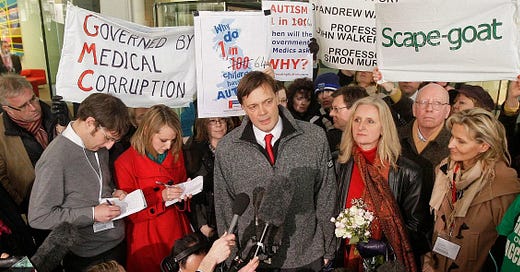


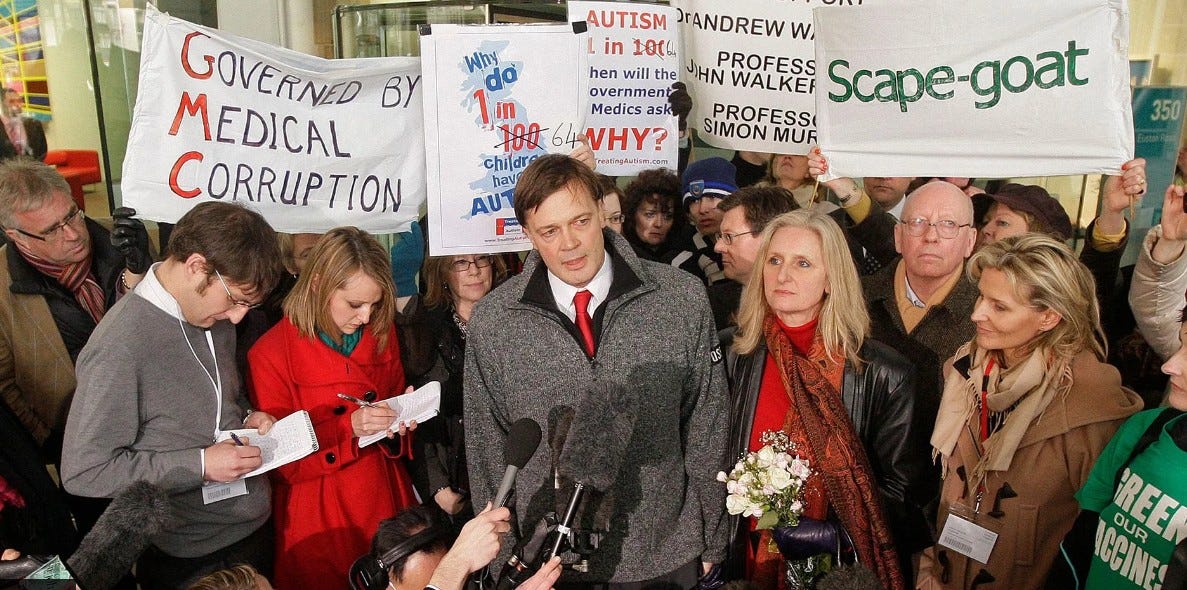

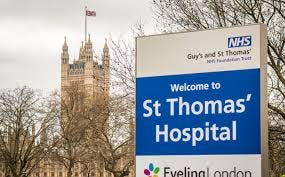
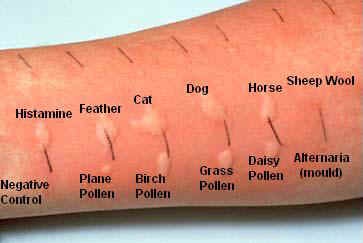
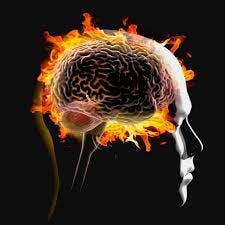
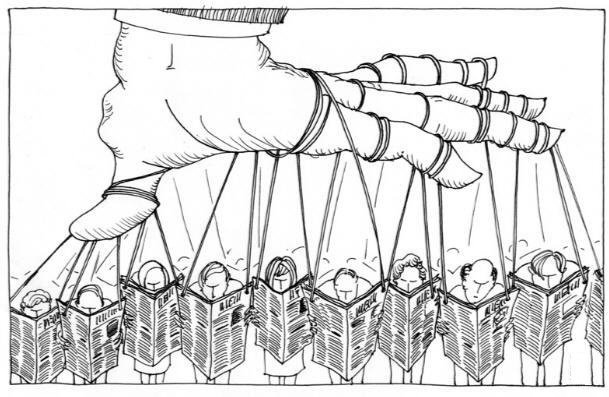
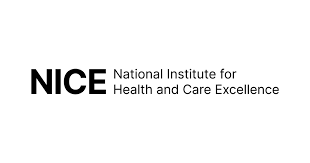

It’s a control mechanism that relies on public ignorance of what autism is.
They found and magnified a little previously unknown wacky online cult known as the neurodiversity movement to push onto society a sanitised version of what autism is.
An emotionally vulnerable group like high functioning autistic people are only too pleased to be told there is nothing wrong with them it’s all society’s fault they are unable to live full lives.
Those with more serious disabilities are deliberately excluded from being represented, a good example was in the controversy and social media anger among neurodiversity advocates when singer Sia released a movie called music, where a non-verbal obviously disabled autistic girl was the main character, rather than the usual genius code breaker saving the world that is often shown.
Sia rather than stand up for severe autism pathetically apologised for the so-called poor representation of autism and became an online hate figure anyway.
However, Hollywood itself is bought and paid for.
Movies like the recent accountant 2 and shows like The good Doctor deliberately re-enforce this carefully crafted public picture of funny, socially awkward geniuses rather than a majority of suffering, severely distressed and disabled victims that will require enormous human and financial resources to manage.
The only way to break this is through public information. One reason RFK got so much heat was he released previously suppressed IQ figures showing the majority of autistic 8-year-old`s far from geniuses have an intellectual capability below a normal range with up to 40% being intellectually disabled.
The next step is to release stats for 18 year olds for the public to get a true picture of future trajectory and what autism really means for many of those that have it and society.
This is true. There is a diagnosis, but no medical help. Almost every attempt to pursue a physical condition which might provide a clue ends in a referral to a psychologist.